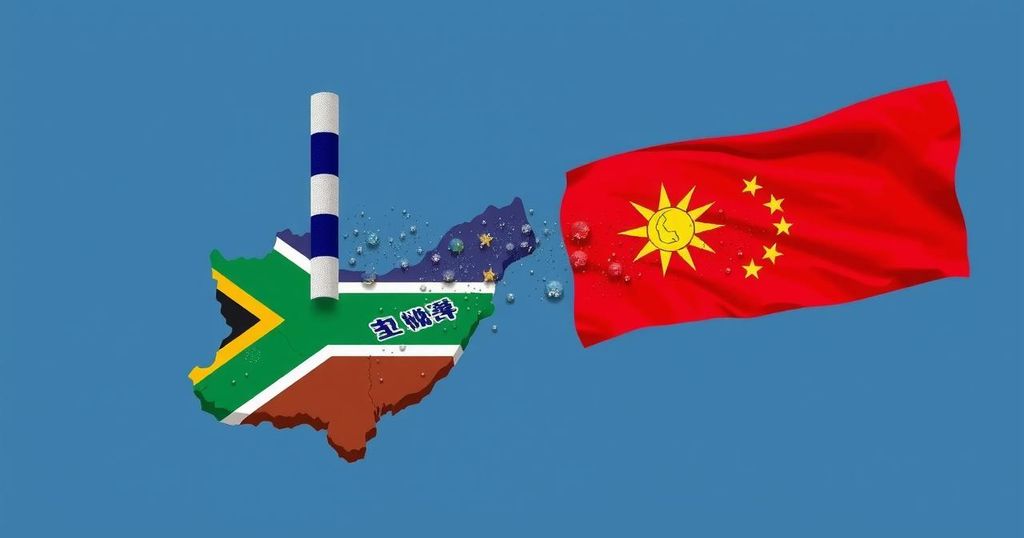South Africa has ordered Taiwan to relocate its liaison office from Pretoria to Johannesburg, allegedly under pressure from China. This move reflects the ANC’s attempts to maintain a favorable relationship with Beijing following political changes after recent elections. Analysts suggest that this decision highlights the growing influence of China on African nations in foreign policy matters.
South Africa’s recent decision to downgrade its diplomatic relationship with Taiwan, directing the Taipei Liaison Office to relocate from Pretoria to Johannesburg, has raised significant concerns among analysts. The move appears to be influenced by China’s pressures amid South Africa’s shifting political landscape. The African National Congress (ANC), which previously held an absolute majority, is now navigating a coalition government and seeks to reaffirm its allegiance to Beijing. The South African Department of International Relations and Cooperation confirmed that the Taiwanese office would be rebranded as a trade office, citing standard diplomatic practices that dictate embassies remain in capital cities. This strategic relocation, requested to be completed within six months, aims to reflect the non-political nature of relations between South Africa and Taiwan. However, Taiwanese officials believe this decision emanates from capitulation to Chinese authority and expressed hope for a reassessment of this directive. They have indicated potential reciprocal actions if South Africa persists in its demands, which may include altering the status of South African offices in Taiwan. China welcomed South Africa’s directive, asserting that it aligns with the broader international rejection of Taiwanese independence. Political analysts suggest that the ANC’s efforts to stabilize its declining power, following recent elections that resulted in the loss of its one-party rule, compel it to maintain close ties with Beijing regardless of the newly formed coalition government’s ideological differences. Despite growing international pressures, South Africa’s actions resonate with a broader trend across the African continent, where several nations have similarly yielded to Chinese pressure against recognizing Taiwan. Economists note that China’s substantial investments in Africa, particularly via the Belt and Road Initiative, have fortified its diplomatic clout. In light of this situation, the development reflects the ongoing geopolitical dynamics and emphasizes the challenging balancing act faced by African nations in their foreign relations.
This article addresses South Africa’s adjustment of its relations with Taiwan, spurred by significant political changes following recent elections, which resulted in the ANC losing its governing monopoly. The ANC’s relationship with the Chinese Communist Party (CCP) remains intact despite the coalition government’s formation, as South Africa seeks to maintain strong ties with China, the continent’s foremost trade partner. The One-China policy, which asserts Beijing’s claim over Taiwan, has increasingly pressured African countries to align with Chinese diplomatic expectations, seeing little tolerance for recognition of Taiwan’s sovereignty.
In conclusion, South Africa’s decision to relocate Taiwan’s diplomatic office away from Pretoria reflects a complex interplay of domestic political shifts and external pressures from China. With the ANC striving to reassure its historically significant ally amidst a transformative government landscape, the implications of this move underscore the intricate challenges facing African nations as they navigate international politics, particularly in relation to China’s growing influence on the continent.
Original Source: www.voanews.com







